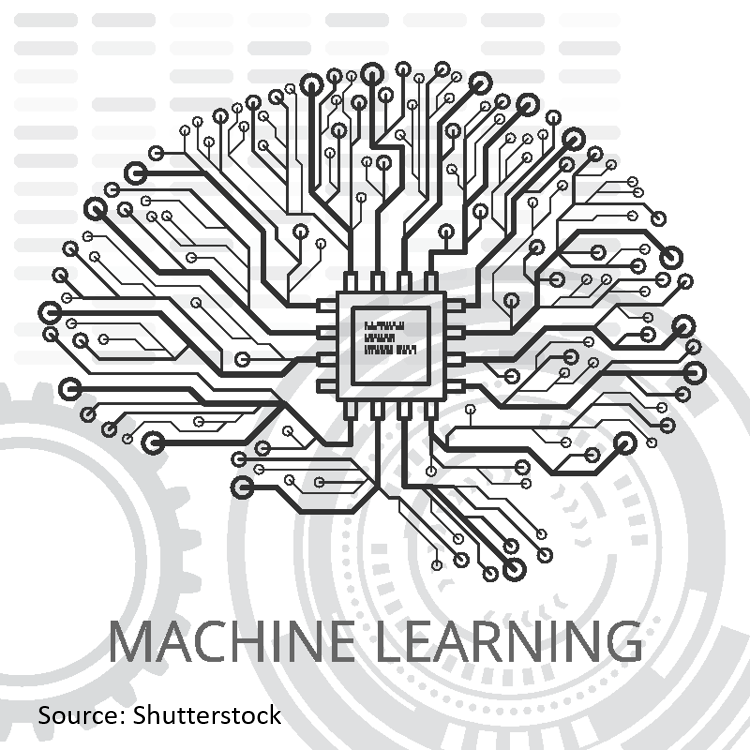A couple of years ago, business consultant Ronald van Loon (@Ronald_vanLoon) predicted machine learning would soon go mainstream. He wrote, “First there was big data — extremely large data sets that made it possible to use data analytics to reveal patterns and trends, allowing businesses to improve customer relations and production efficiency. Then came fast data analytics — the application of big data analytics in real-time to help solve issues with customer relations, security, and other challenges before they became problems. Now, with machine learning, the concepts of big data and fast data analytics can be used in combination with artificial intelligence (AI) to avoid these problems and challenges in the first place.”[1] As van Loon points out in his article, machine learning (ML) is a subset of artificial intelligence (AI) even though many people use the terms interchangeably.
Benefits of Machine Learning
In his article, van Loon cites a study by Bain & Company which found companies using machine learning and analytics are:
- Twice as likely to make data-driven decisions.
- Five times as likely to make decisions faster than competitors.
- Three times as likely to have faster execution on those decisions.
- Twice as likely to have top-quartile financial results.
Erin Hawley, DataRobot’s vice president of public sector, notes, “A blend of AI and data science, machine learning doesn’t just use algorithms to make decisions — it can learn from past data points, refining its methodology and getting smarter as time progresses and more data is collected and analyzed. The game-changer here is predictive intelligence — the ability to anticipate and prepare for future events based on sophisticated algorithms.”[2] The benefits machine learning can bring to a business are myriad. As a result, van Loon concludes, “Predictive data analytics and machine learning are becoming necessities for businesses that wish to succeed in today’s market.”
Another subset of AI that utilizes machine learning is cognitive computing. I define cognitive computing as the combination of Semantic Reasoning (machine learning, natural language processing, and ontologies) and Sophisticated Mathematics. Because cognitive computing uses natural language processing, users don’t need to be data scientists to benefit from its use. In other words, cognitive computing helps democratize the use of AI. François Chollet (@fchollet), a deep learning researcher at Google and author of Keras (an open source neural network library written in Python), explains why is it important to democratize AI and machine learning. He writes: “Because machine learning and artificial intelligence have tremendous potential for value creation, we should not let any of that potential go to waste. People with the drive and intelligence required to advance the field of ML or to use AI to create great things can come from anywhere, and we have a responsibility to make sure that these people can readily access the knowledge and tools they will need to realize their full potential. What’s more, we should do our best to inspire capable people the world over so that they will want to dedicate their talents to value creation through AI. If we believe that AI has a high return on investment, then democratizing AI is simply the rational strategy.”[3]
Machine Learning’s Surprisingly Slow Adoption
Since there are so many benefits for companies implementing machine learning solutions, it might surprise you to learn that machine learning adoption has been slow. As Alex Woodie (@alex_woodie) notes, “Despite the hype surrounding artificial intelligence, we’re still in the early stages of adopting machine learning in the enterprise. … Machine learning and AI are in the process of entering the mainstream of business technology, but we may not be as far along the path as some might believe. While some companies have embraced machine learning as a core aspect of their business — including tech companies like Google, Netflix, and Uber — the actual adoption of machine learning is still relatively low in the real world.”[4] Woodie draws those conclusions from a 2018 survey conducted by O’Reilly Media. Tony Baer (@TonyBaer), head of Big Data research at Ovum, believes the O’Reilly Media survey may be skewed on the high side. He explains, “[O’Reilly Media surveyed] people who subscribe to its publications and go to its big data-related Strata and AI conferences regarding ML. … Our take is that if you blew out the survey to a totally blind sample taken from the general population, those numbers would drop considerably.”[5] To bolster his argument, Baer notes the job titles of respondents is very telling. “At 57% of responses,” he notes, “data scientist was by far the most common job title, followed by business analysts and data analyst at 51%, and trailed by data engineer at 39%. The results clearly show the skew of the sample; if you surveyed enterprises in general, we’d doubt that over half of them have data scientists. Moreover, the demand for data engineers is currently more than quadruple that for data scientists, based on job listings from Indeed.com.” In other words, companies are probably even earlier in the machine learning adoption cycle than the survey leads us to believe.
Summary
Since every business is different, each one has unique data challenges. Fortunately, cognitive computing platforms are adaptable and be tweaked to address each companies’ novel situation. As more and more companies implement cognitive solutions, they will understand how widely these solutions can be used throughout the enterprise. As a result, the pace of adoption is likely to pick-up over the next few years.
Footnotes
[1] Ronald van Loon, “Machine Learning Becomes Mainstream: How to Increase Your Competitive Advantage,” LinkedIn, 17 August 2016.
[2] Erin Hawley, “AI and machine learning: Looking beyond the hype,” FCW, 15 December 2017.
[3] François Chollet, “Why Is It Important To Democratize Machine Learning?” Forbes, 28 December 2016.
[4] Alex Woodie, “It’s Still Early Days for Machine Learning Adoption,” Datanami, 7 August 2018.
[5] Tony Baer, “Taking the pulse of machine learning adoption,” ZDNet, 8 August 2018.





